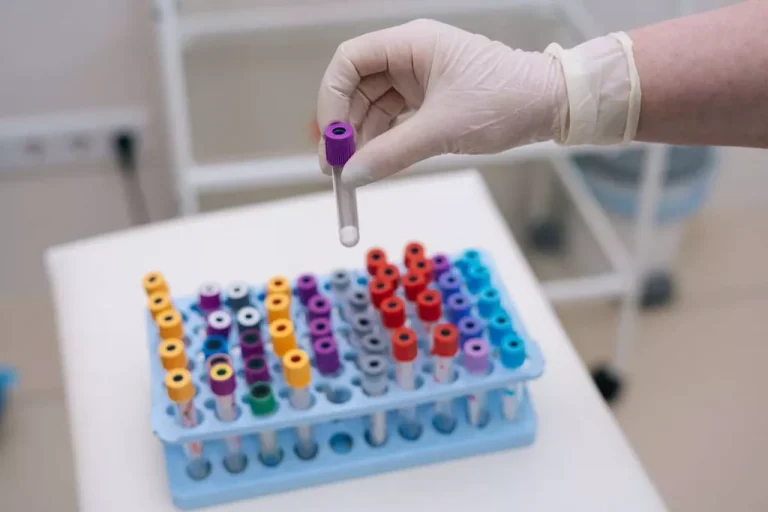Other effects can include respiratory depression, constricted (“pinpoint”) pupils and nausea. Effects of overdose may include slow and shallow breathing, hypotension, blue lips and nails, muscle spasms, convulsions, coma, and possible death. Heroin is metabolized to morphine and other metabolites which bind to opioid receptors in the brain.
Other NIDA Sites
- Government data shows that SUD tends to be more common among Black people than Hispanics, Asians, and people who are white.
- Opioid use disorder is a serious condition, but it’s treatable.
- It can include genetic, psychological, and environmental factors.
- Data sources include Micromedex (updated 4 Jun 2024), Cerner Multum™ (updated 3 Jun 2024), ASHP (updated 10 Jun 2024) and others.
Whether or not someone becomes addicted depends on many factors. They include genetic, environmental, and developmental factors. The brain changes from addiction can be lasting, so drug addiction is considered a “relapsing” disease. This means that people in recovery are at risk for taking drugs again, even after years of not taking them.
What are the signs and symptoms of substance use disorder?

Most health insurance plans offer full or partial coverage for substance abuse treatment. Under some insurance plans, treatment costs can be drastically reduced. The cost of heroin drug treatment will depend on factors such as the level of care, geographic location, and how you plan to pay for rehab. Medications such as methadone and buprenorphine serve the purpose of helping a person achieve full recovery from addiction. Heroin is an opioid drug that is derived from the natural opiate morphine.
Physical effects of drug misuse
Taken daily, it is available in liquid, powder and diskettes forms. Methadone is a medication used to treat Opioid Use Disorder (OUD). Methadone is a long-acting full opioid agonist, and a schedule II controlled medication. Methadone used to treat those with a confirmed diagnosis of opioid use disorder (OUD) can only be dispensed through a SAMHSA certified OTP.

Does everyone who takes drugs become addicted?
Seeking help from a qualified rehab center can help you get on the path to long-lasting sobriety. But she dwells on the years when her drug addiction erased her from her own life. While she was heroin addiction treatment using — mostly crack cocaine and heroin — and for the 25 months she spent incarcerated, her parents and sister were raising her two kids, Hannah Moumen and her older brother Curtis Jones.
It’s important to turn to healthy coping mechanisms during these times of change, such as exercising, meditating or learning a new hobby. Consider seeing a mental health professional if you’re having issues managing your stress. Treatment for SUD often requires continuing care to be effective, as SUD is a chronic condition with the potential for both recovery and relapse. Seeking medical care as soon as you have signs of substance use disorder is essential. A person can have more than one substance use disorder at a time, such as alcohol use disorder and cocaine use disorder.
If you need treatment for addiction to heroin or another opioid you can either see a GP or contact your local drug treatment service. As someone with a drug addiction you’re entitled to the same confidential NHS care as anyone else who has a health problem. If you’re addicted to heroin and want to stop, you can ask a GP or local drug treatment service for help. Always consult your healthcare provider to ensure the information displayed on this page applies to your personal circumstances. Occurring more frequently in the U.S., heroin purchased on the street may be “cut” or contaminated with other dangerous and extremely potent opioids, such as fentanyl or carfentanyl.
Patients and visitors
- Treatment for opioid and heroin addiction are similar in that medication-assisted treatment (MAT) is often used for both to help minimize withdrawal symptoms and curb the urge to use drugs.
- Many people relapse after heroin detox because they don’t know how to maintain sobriety.
- However, it can lead to addiction and cause severe side effects and withdrawal symptoms.
- Behavioral therapies help people in drug addiction treatment modify their attitudes and behaviors related to drug use.
- They include genetic, environmental, and developmental factors.
Look for “tianeptine,” “tianeptine sodium” or “tianeptine sulfate” listed in the ingredients or supplement facts. The FDA has never approved tianeptine to treat depression or any other condition. Tianeptine also never earned a Generally Recognized as Safe (GRAS) designation, a label the FDA puts on some chemicals and food additives. When you walk into a gas station or convenience store, you don’t expect to find an addictive drug on the shelf. If you have a mental disorder along with an addiction, it is known as a dual diagnosis. STAT’s coverage of chronic health issues is supported by a grant from Bloomberg Philanthropies.
